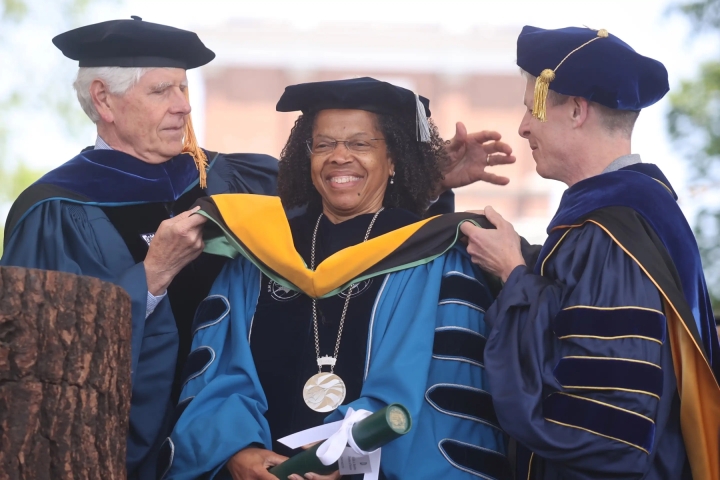GILDA BARABINO, as a pioneering chemical and biomedical engineer, award-winning interdisciplinary scholar, and accomplished academic leader, your dedication to the advancement of science and to equity and equality – broadly speaking and in STEMM fields – has made you one of the most respected and influential problem-solvers of our time.
Always an inquisitive child, you grew up in a myriad of cities as part of a military family, eager to understand how things work. When your high school chemistry teacher implied that the subject wasn’t meant for girls, you made it a point to prove otherwise, earning your bachelor’s degree in chemistry from Xavier University of Louisiana in 1978. Eight years later, you became the first African American to earn a Ph.D. in chemical engineering from Rice University.
After a series of successive appointments at some of the world’s most prestigious universities, you rose to the presidency of Olin College of Engineering in 2020 as the first female and African American in that role.
Your pathbreaking research on sickle cell disease has informed current technologies, opened the door to new avenues of research, and formed the basis of novel therapies.
In addition, your expertise in eliminating barriers to success and building supportive cultures for underrepresented groups has deeply influenced the work of the National Academies of Science, Engineering and Medicine, the American Association for the Advancement of Science, and even the U.S. government, as you spearhead the formation of a coalition to expand and diversify the semi-conductor workforce in support of the 2022 CHIPS and Science Act.
For your inspirational leadership as a scientist, educator, and administrator and your unrelenting drive to develop science and engineering solutions that lead to a more healthy, prosperous, and just society, Dartmouth is proud to award you the honorary degree of Doctor of Science.

